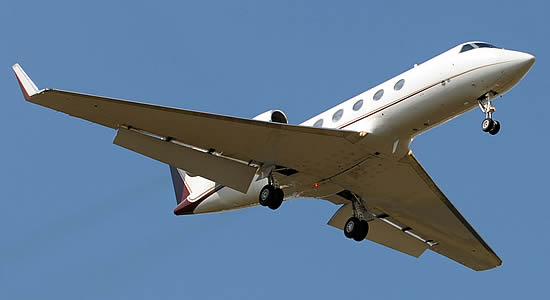United States Navigating Russian sanctions in corporate jet transactionsBy Jonathan M. Epstein and Libby Bloxom, Holland & Knight LLP |
The US, European Union (EU), United Kingdom (UK) and many other countries have imposed similar but not necessarily identical sanctions on Russia. In corporate jet transactions, the sanctions laws of several jurisdictions may be implicated.
Sanctions and export control restrictions affecting aviation include:
-
Sanctions blocking the assets of and prohibiting transactions with certain Russian companies and individuals, along with the property such companies and individuals own or control. The US Department of the Treasury's Office of Foreign Assets Control (OFAC) has designated a number of such persons as Specially Designated Nationals (SDNs). Further, the US Department of Justice (DOJ) established the Task Force KleptoCapture, which is aimed at seizing SDNs' property, and other countries also are actively looking to seize property (including aircraft and yachts) owned by sanctioned oligarchs.
-
Export controls generally prohibit the export or reexport of civil aircraft and parts to Russia or for use in Russia. While there are some exceptions for flights by non-Russian airlines to Russia, since March 2, 2022, any flights to or from Russia of an aircraft owned, operated, chartered or leased by a Russian national would violate US export control laws. To date, the US Department of Commerce has identified approximately 150 Russian-operated aircraft (mostly commercial aircraft) that have violated these laws.
-
Many Russian banks have been designated as SDNs and/or blocked by other countries’ laws, while some Russian entities have been targeted for more limited sanctions. This means funds transfers involving Russian entities that are wired through Russian banks may be blocked or rejected by western banks.
-
Airspace restrictions limit flights both between Russia and certain countries, as well as operations by certain Russian persons within national airspace. In the US, the Federal Aviation Administration (FAA) has clarified that this latter restriction only applies to aircraft owned, leased or chartered to Russian nationals who have been identified on a barred entity list and not to all Russians. EU and UK restrictions are much broader.
-
EU and UK sanctions prohibit the leasing or insuring of aircraft for use in Russia as well as providing maintenance or technical support for aircraft owned or operated by Russian nationals.
-
On May 8, 2022, the US prohibited US persons from providing accounting, trust, and corporate formation or management consulting services to any person located in Russia on or after June 7, 2022, in addition to requiring the wind-down of existing relationships. Further, OFAC has determined that non-US persons could be sanctioned for providing these services to persons in Russia, even if there is no US nexus.

Red Flags in Aircraft Transactions
In international aircraft transactions, buyers, brokers and attorneys need to be on the alert for information that there is a Russia nexus. Some red flags that may warrant further investigation are:
-
the aircraft is being sold without benefit of an inspection or test flight, which may be evidence the aircraft manufacturer, operator or others have ceased providing support for the aircraft
-
back-to-back deals where the beneficial ownership of the current owner is not fully disclosed
-
a recent related party transfer of ownership or recent change of registry without a bona fide sale to a third party
-
funds coming from or to be wired to persons other than the parties to the transaction
-
the aircraft's past flight history shows extensive flights to or within Russia prior to imposition of sanctions on Feb. 24, 2022, or that the aircraft was flown to a neutral country like the United Arab Emirates (UAE) shortly after sanctions were imposed and has not been flown since
Such red flags do not necessarily mean the transaction cannot go through, but rather, they likely warrant enhanced diligence to ensure that the transaction does not violate sanctions and that the buyer can take good title and receive support for the aircraft after closing.
Steps Parties Can Take to Protect Themselves
Where there are red flags or other risk factors, parties should certainly include additional contractual protections and representations regarding sanctions. However, such representations are not due diligence and will not protect a party from sanctions. Rather, it is critical for a party to conduct and document enhanced due diligence that may include the following examples:
-
Most Russian aircraft are owned by non-Russian companies and are not on the Russian registry. Hence, it is critical to determine who the ultimate beneficial owner (UBO) of the aircraft is, as well as the other parties to the transaction (e.g., lessors, banks being used, etc.). Such parties should be vetted against not only the OFAC SDN list but also other relevant sanctions and export control lists. While parties in back-to-back deals may be reluctant to provide this information, adequate non-circumvent and confidential provisions can be put in place to allay commercial concerns.
-
If not apparent, confirm with the aircraft and/or engine manufacturer that the aircraft will be supported, as the manufacturers may have frozen support for the aircraft pending further sanctions review.
-
Understand where the money is flowing from and to, including intermediary banks.
-
Check the flight history to ensure that the aircraft has not been operated in violation of US export laws and therefore subject to export restrictions.
-
Given the rapidity with which sanctions are changing, it is critical to conduct diligence not only at the beginning of the transaction but also immediately prior to taking delivery.
Will the US Government Help?
Sanctions are aimed at Russia and certain Russian persons, and the US government has been willing to assist US citizens and others, particularly where such assistance will remove assets from Russian hands and in the interests of aviation safety.
-
If the aircraft is beneficially owned by a non-sanctioned Russian national or dual Russian/third-country national and based outside Russia, the Commerce Department's Bureau of Industry and Security (BIS) may, upon request, issue an advisory opinion stating that US and other persons can service, maintain or operate the aircraft.
-
If the aircraft has been involved in export violations, then as a legal matter it is tainted, meaning that no US person can buy, sell, maintain or operate the aircraft if they have knowledge of such violation. BIS may issue a waiver, however, if the aircraft is being removed from Russia, such as incident to repossession by a lessor or lender. This also requires submission of a parallel voluntary disclosure of the violation.
-
Where the aircraft is or was beneficially owned by an SDN, then in all likelihood a license from OFAC will be needed to complete the transaction. In such circumstances, the proceeds of the sale would need to be placed in a blocked account rather than be remitted to the SDN. OFAC construes the "property interest" of an SDN broadly. For example, in a back-to-back transaction where the buyer is buying the aircraft from a non-sanctioned intermediary, the second transaction would also be subject to blocking.
Risks in Engaging in Transactions Involving Russian-Owned Aircraft
There are both legal and practical risks that robust due diligence can mitigate against. In addition to reputational harm, a party may be strictly liable for civil penalties or subject to other sanctions, and in the US, there are criminal penalties for intentional violations. Further, the aircraft itself could be seized by authorities, for example, when it enters the US In such circumstance, the asset could be forfeited unless the new owner can show they are a bona fide buyer who had no knowledge (after conducting diligence) that the aircraft was tainted property. Similarly, funds transfers could be blocked by banks where an SDN is directly or indirectly involved in a transaction.
If you have questions about the sanctions related to the aviation industry, please contact the authors. For information about the firm's business aviation practice, please contact any member of Holland & Knight's Business Aviation Group.
The Authors Jonathan M. Epstein (Partner) and Libby Bloxom (Associate) at US multinational law firm, Holland & Knight LLP. |
 |
 |
This article provides a high-level overview of sanctions as of May 10, 2022. It is not intended to be legal advice, and parties are urged to consult with their counsel as these sanctions and export control restrictions are complex, fact-specific and rapidly changing.





